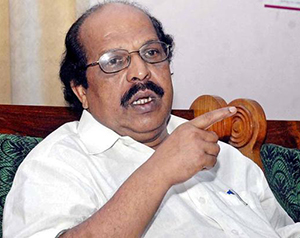Kasargod, Aug 29: A Kerala minister is in the eye of a storm over his remarks that lighting of lamps and singing of religious hymns at government programmes and functions at schools should be avoided.
"Our Constitution has no religion or caste.So there is no need to light 'nilavilakku' (traditional lamps) during the inauguration of the government programmes or at functions of schools," said Public Works minister G Sudhakaran while inaugurating a seminar,'Namukku Jathiyilla' (We are not caste driven) at Muthukulam in Alappuzha district last evening.
The senior CPI(M) leader said that the state government does not subscribe to any particular caste or religion.
The minister also claimed that he had recently seen a girl student reciting a prayer in praise of a goddess at a school function.
"Though it was inappropriate,singing of religious prayers and lighting of traditional lamps had become a common practice during official functions in the state now-a-days," he added.
He also suggested that patriotic songs be sung during public functions, instead of religious hymns.
Reacting to his remarks, several people trolled the minister on the social media.
Health Minister K K Shylaja, another senior member in the Pinarayi Vijayan government, had also courted controversy recently by voicing displeasure against the recitation of Sanskrit hymns during a yoga demonstration, organised in connection with the International Yoga Day on June 21.






Comments
What he said is 100% right. We are in a secular democratic country where the government will have any religion and which will allow its citizens to practice/preach or not to practice any particular religion
Add new comment